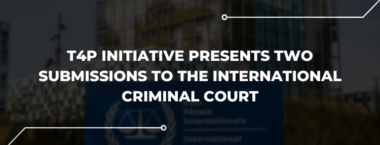
Torments, Torture Chambers, Executions: T4P Initiative Presents Two Submissions to the International Criminal Court
Information about extrajudicial executions of Ukrainians by the Russian military and Russian torture chambers in...
28 September 2023
29.09.2018
The Ukrainian Parliament Committee on Human Rights, National Minorities and Interethnic Relations, with the support of the Ukrainian Helsinki Human Rights Union and USAID Human Rights in Action Program, held a roundtable entitled Transitional Justice as a Way of Overcoming the Consequences of the Conflict and Armed Aggression.
Its goal was to discuss the prospects of using international experience with transitional justice for resolving the armed conflict in Ukraine and during the post-conflict period, preventing impunity, ensuring efficient investigation of war crimes, introducing new approaches to helping the conflict-affected people, as well as restoring legal ties with those living in the occupied territories.
The roundtable consisted of the two working sessions: Legal Foundation of Transitional Justice in Ukraine and What Can Ukraine Do to End the Conflict?
Session 1: Legal Foundation of Transitional Justice in Ukraine
Hryhoriy Nemyria, Head of the Ukrainian Parliament Committee on Human Rights, National Minorities and Interethnic Relations, noted that Ukraine lacks experience in using transitional justice, so there will be many more such discussions. “Ukrainian citizens currently living in non-government-controlled territory have the right to know how the Ukrainian government views transitional justice,” he said. “This is one of the components of a lasting peaceful resolution.”
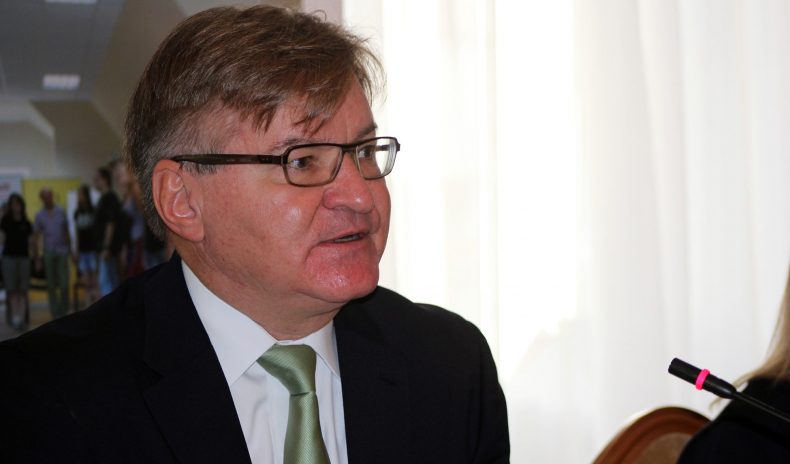
According to Oleksandr Pavlichenko, Executive Director of the Ukrainian Helsinki Human Rights Union, UHHRU has conducted and published a baseline study on the implementation of transitional justice in Ukraine. In addition, a bill On the Principles of State Policy on Protecting Human Rights in the Context of Overcoming the Consequences of the Armed Conflict was jointly developed with multiple partners. It should become a source of legal regulation to help deal with the aftermath of the conflict.
“We should also study both positive and unsuccessful attempts to introduce transitional justice in other countries, since it’s better to learn from the mistakes of others,” said Oleksandr Pavlichenko.
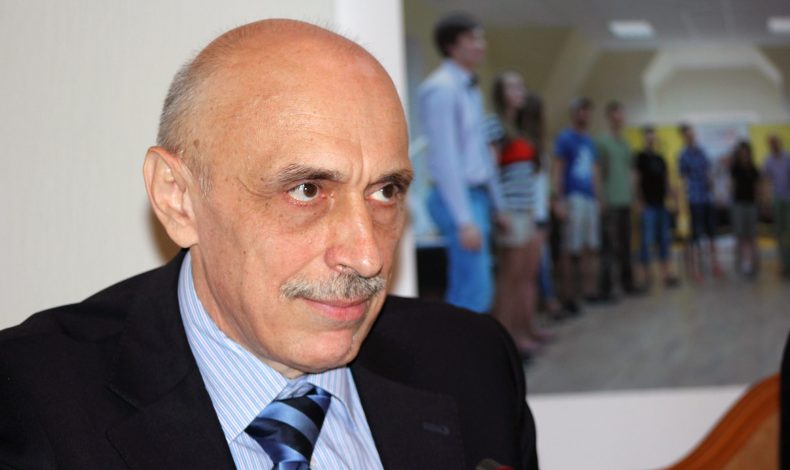
UHHRU is working on two components of transitional justice: protection of victims and prosecution of war criminals. This has already resulted in 300 victims-related cases handled by the Union’s lawyers in domestic and international courts. The UHHRU Documentation Center is collecting evidence for these proceedings. Over 2,900 people have already given their testimonies. The interactive Memorial Map contains information about more than 11,200 people killed in the course of the conflict on both sides.
According to USAID Human Rights in Action Program Director at UHHRU Taras Tsymbrivskyi, promoting the rule of law in a post-conflict environment, still fragile, requires consistent strategic planning. For this, transitional justice must be in line with international principles and norms and be based on human rights, with its focus on the victims of the armed conflict. In addition, transitional justice must be tailored for the local situation: no transitional justice model can simply be borrowed unchanged.

Mykola Hnatovskyi, President of the European Committee for the Prevention of Torture and expert on international law, said that Ukraine is not yet ready for transitional justice, since it only begins after a conflicts ends. And one of the strategies of the aggressor state is to keep Ukrainian society divided, keeping the positions of different parts of our people apart, namely the part that has been living in non-government-controlled areas of Ukraine for many years and is being constantly subjected to massive Russian propaganda.
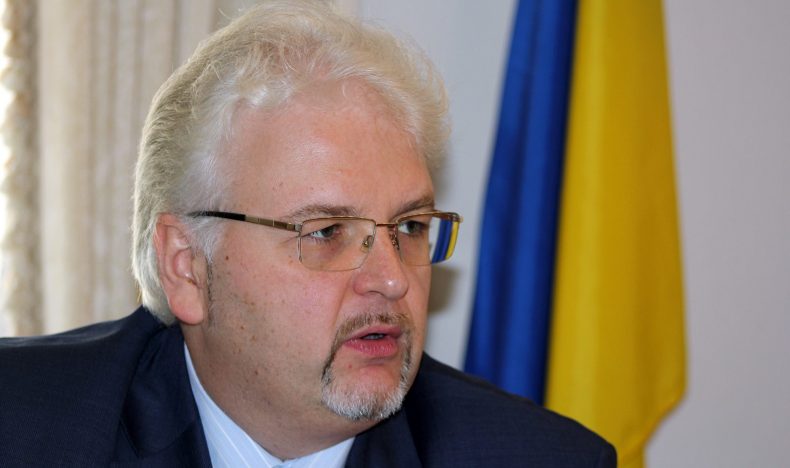
“Ukraine has not yet fulfilled all of its international commitments, and we will have to do even more,” said Mykola Hnatovskyi. “We’ll have to create a model that would ensure a sustainable peace in Ukraine. The main burden of investigating war crimes will not be on the Hague, but on Ukraine, on Ukrainian law enforcement. Thus, any fears about ratifying the Rome Statute will immediately disappear, as we will be able to count on the International Criminal Court for prosecuting those individuals that Ukrainian justice will be unable to reach.”
Session 2. What Can Ukraine Do to End the Conflict?
According to People’s Deputy of Ukraine Iryna Suslova, there exist several problems with introducing transitional justice in Ukraine’s legal system. The terminology of international legal documents often differs from that of national ones. This includes such concepts as “victims of the conflict”, “truth commissions”, “establishing historical truth”, “documenting war crimes” and others. Financial, economic, and scientific commissions often impede advocation of social and innovative issues in the Parliament. This concerns the issue of reparations to people for homes destroyed in artillery attacks. Some MPs believe that recognizing the need to pay such reparations is tantamount to admitting Ukraine’s guilt in the conflict.

Vladyslav Vlasiuk, Director of the Human Rights Directorate at the Ministry of Justice, said that he understands transitional justice as reconciliation and compromise, and this would call for many unpopular decisions. “For example, the UK government pardoned terrorists on certain occasions in exchange for valuable information that helped prevent other crimes,” said Vladyslav Vlasiuk. “These decisions were so unpopular that the Prime Minister personally visited the victims of terrorist attacks to explain to them the need for such actions.”
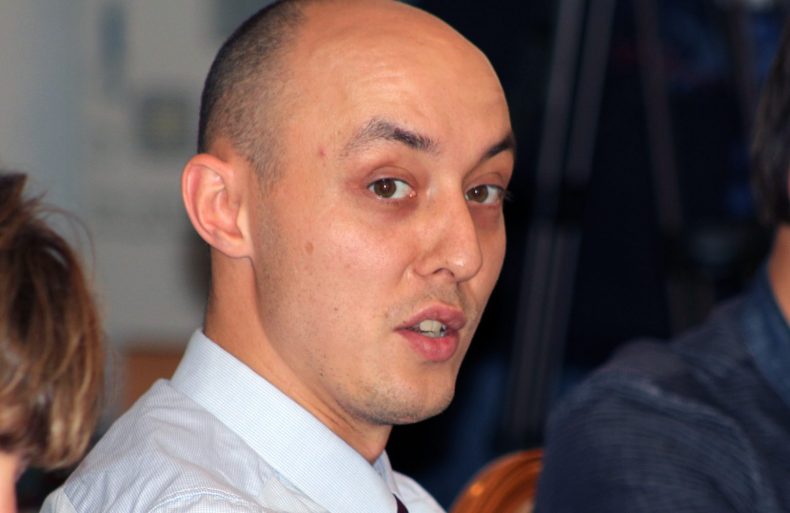
Valeriya Zaruzhko, People’s Deputy from Oleg Liashko’s Radical Party and IDP from Donetsk, said that it is very important to reach people in the occupied and non-government-controlled territories. “These people do not accept Russian propaganda but remain hostages there, since they don’t have the financial means to leave and on top of that feel unwanted in Ukraine-controlled territories,” she said. “These people should be told that they are not held responsible for what’s happened, they won’t be put into any camps or reservations, that after Ukraine’s borders are back under government control they won’t be facing any punishment.”
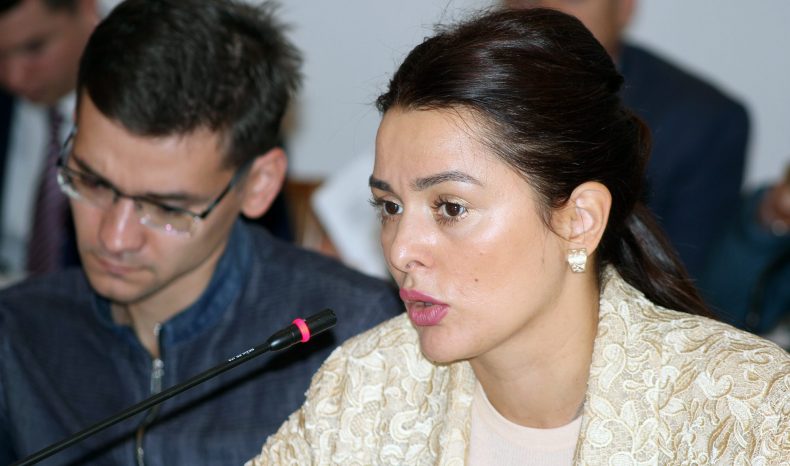
First Deputy Minister of Information Policy Emine Dzhaparova brought up the Strategy for Informational Integration of Donbas adopted on July 26, 2018, which, however, does not say how to get these territories back. Among the key parts of the Strategy is the statement that the occupation of Donbas is an act of armed aggression by the Russian Federation, while Russian propaganda calls it a civil war. Another part names Ukrainian citizens residing in non-government-controlled territories hostages of this situation and states that the government has certain responsibilities to them. The actions of Russia’s armed forces and its occupying authorities in Donetsk and Luhansk oblasts are illegal and violate international law.
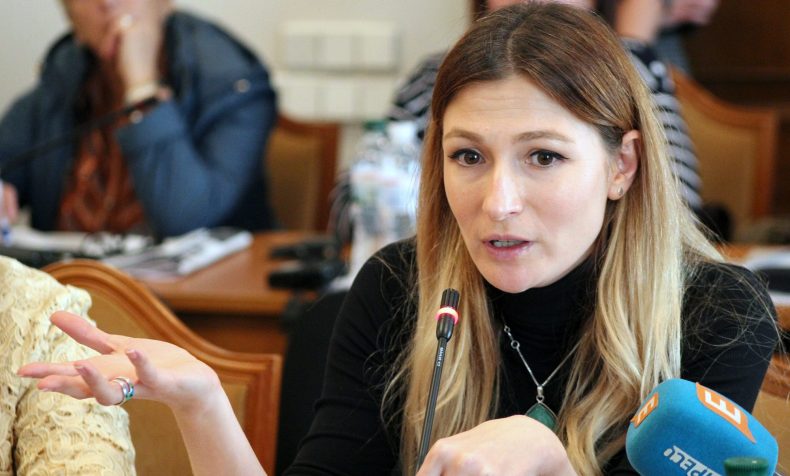
During the roundtable, the participants voiced a number of ideas and suggestions on how to go about introducing transitional justice in Ukraine, as well as what surprises could be waiting along the way, considering international experience.
Text and photo by Oleh Shinkarenko (UHHRU)
The event was held with the support of the American people provided through USAID. The American people, through USAID, have provided economic and humanitarian assistance worldwide for 55 years. In Ukraine, USAID’s assistance focuses on three areas: Health and Social Sectors, Economic Growth, and Democracy and Governance. Since 1992, USAID has provided technical and humanitarian assistance to Ukraine amounting to $1.8 billion.
For additional information about USAID programs in Ukraine, please visit our website: http://ukraine.usaid.gov or Facebook page at https://www.facebook.com/USAIDUkraine.
If you find an error on our site, please select the incorrect text and press ctrl-enter.

Information about extrajudicial executions of Ukrainians by the Russian military and Russian torture chambers in...
28 September 2023
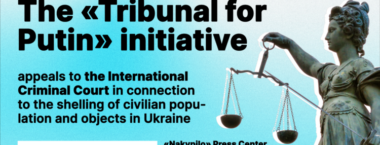
Since the onset of the full-scale invasion, the «Tribunal for Putin» initiative has recorded about...
18 August 2023
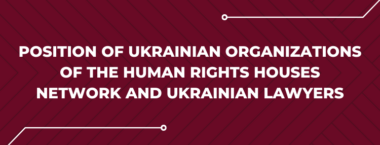
Position of Ukrainian organizations of the Human Rights Houses Network and Ukrainian lawyers on the...
17 July 2023

On June 6, 2023, the Southern Area Military Court of Rostov-na-Donu sentenced Mr.Bohdan Ziza, a...
08 June 2023